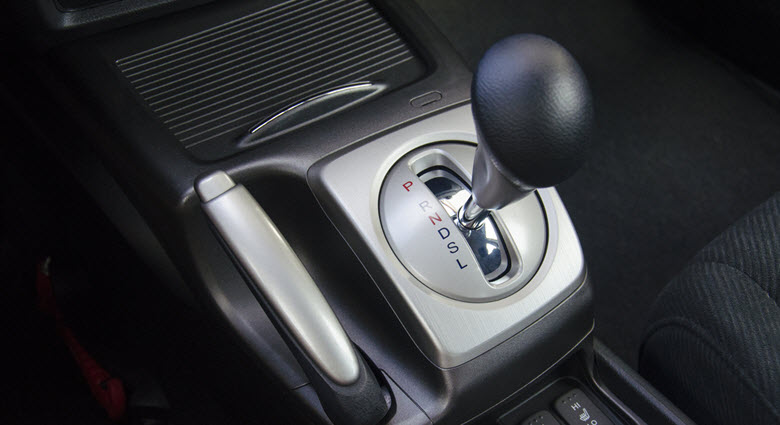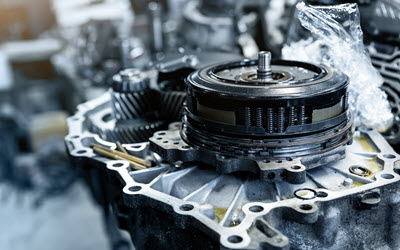Repair of an Automatic Transmission Failure in a Mini by The Most Sought-After Repair Shop in Decatur

The automatic transmission is able to complete gear shifts that a driver would be required to do to accelerate. Many drivers have no idea how an automatic transmission operates or what it does, since gear changes are completed by the onboard computer, sensors, and programs. However, by knowing how an automatic transmission works, a Mini owner can gain a better understanding of how transmission problems occur and how to prevent them.
Some Common Signs of Automatic Transmission Failure
Every complex system in your Mini has warning indicators of a problem using dashboard lights, sounds, and/or physical and visible signs. Sometimes the signals are progressive until they graduate into a full-blown problem that affects your Mini’s ability to operate.
Some of the most common warning symptoms of this type of failure include:
- Grinding or shaking sensation in gear: Automatic transmissions usually select the proper gear smoothly without any grinding, slipping, or shaking sensations. When a transmission starts exhibiting these symptoms, you will notice that something is amiss right away. When the inner CV joint is damaged or the gearbox fails, it affects how the Mini drives, especially when it speeds up or slows down. These vibrations become more violent when the car is under load, and minor vibrations turn into violent shaking. Damaged CV joints usually occur due to tears in the joint boot.
- Your car won’t engage the gears: When you accelerate, your automatic transmission will upshift at the precise time, engaging the clutch, and switching into a higher gear. When the gear won’t change, your engine will rev but you will fail to accelerate if it won’t engage properly.
- Whining, humming, or clunking noises: Unexpected noises in your car are generally never a good thing. You know your car better than anyone. If you begin to hear noises when the gears are shifting up or down, it’s time to seek professional help for an inspection of the transmission system.
- Burning smell: Your automatic transmission is constantly changing gears. This produces an extreme amount of heat. This is usually mitigated by transmission fluid to prevent heat from friction. However, if it smells like something is burning, pull over to a safe spot and shut off your engine. Call for help from a tow if you are concerned about a fire or if you want to prevent your Mini from incurring any more damage.
- Slipping gears: If you notice that your transmission slips down a gear when you were expecting it to maintain or upshift, there is a problem. This can feel like a lurch forward or a hesitation, depending on the conditions. Your engine may rev as well.
- The check engine light illuminates: Complex systems always have an indicator light to alert you to a problem. The check engine light may turn on if your dashboard isn’t set up to digitally inform you of a transmission problem. Do not ignore this indicator, as the sensors are warning you of a potential problem that can negatively impact the engine.
Causes of Automatic Transmission Failures
A variety of interconnected parts and mechanisms make up the transmission. They can develop a variety of issues, causing the transmission to fail:
- Low transmission fluid levels or leaks: Transmission fluid is necessary to lubricate the transmission and needs to be kept topped up to keep it in working order. Transmission fluid will become less effective as well as less protective when there are leaks. Transmission fluid usually has a dark red or pink color and a sweet smell. Usually, droplets created by leaking transmissions are found under your Mini’s front-to-middle part.
- Engine Overheating: While this can be a symptom of an automatic transmission problem, it is also a cause. Gearboxes are not left out when it comes to being hot, like almost every part of your car that requires coolant. The process of gear changing is energy-intensive, and excessive energy is the cause of heat. This can lead to higher transmission temperatures when it is failing. Your engine can also become overheated as a result of this.
- The Gear Shifter: Transmission problems are commonly associated with problems with the gear shifter. The vehicle may stay in low RPMs after a shift, not rev to the appropriate RPMs for shifting, or prematurely shift gears. When your car shifts, you may also notice its jolts or shudders.
Munich West Service Center for the Health of Your Automatic Transmission
At Munich West, we provide quality services  to our clients in and around Decatur and Atlanta, GA. Contact us today with any questions you have or to schedule an appointment!
to our clients in and around Decatur and Atlanta, GA. Contact us today with any questions you have or to schedule an appointment!




